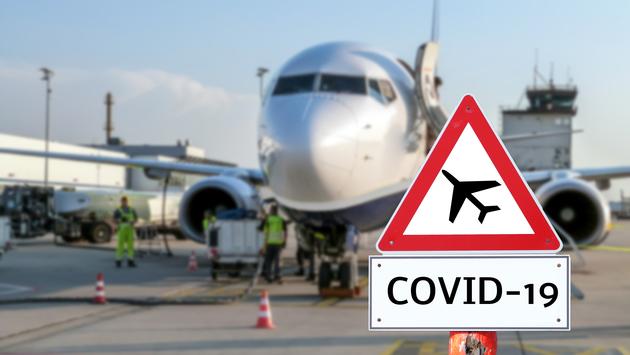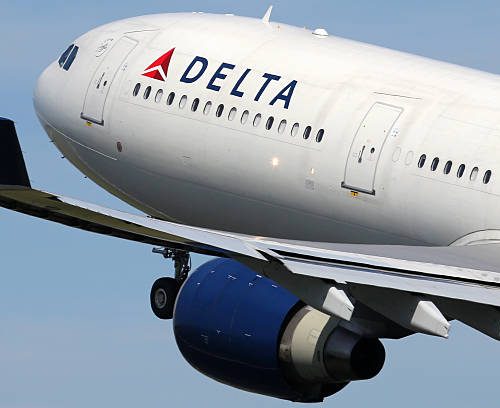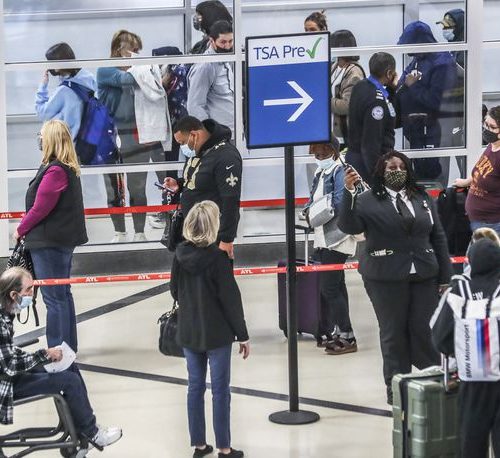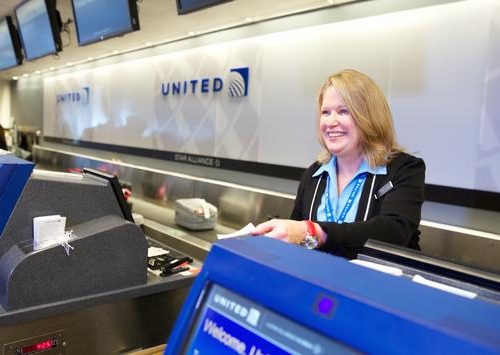LACEY PFALZ | TravelPulse.Com
Troy Warren for CNT #Travel #COVID-19
The Omicron variant is the newest COVID-19 variant to gain worldwide attention when it was discovered last week, prompting governments worldwide to close international travel to and from Southern African countries, its region of origin.
Already, the U.K. changed its entry requirements for all international travelers, requiring a rigorous testing regime and a self-isolation period. Four of the nation’s largest airports are screening for the Omicron variant among international travelers, while the Biden administration has extended its mask mandate for federal transportation through March 2022 as well as new COVID-19 testing requirements for inbound international travelers.
Those new requirements will take effect beginning December 6, 2021.
“This new variant is cause for concern, but not panic. We knew there would be cases of Omicron here in the States, and it’s here,” said President Joe Biden. “But we have the best tools: the best vaccines in the world, the best medicine and the best scientists in the world.”
The World Health Organization also issued a revised travel advisory recommending that all travelers over the age of 60, the unvaccinated and those with underlying health conditions that could heighten the severity of COVID-19 to postpone travel for the near future.
So what do we know about Omicron so far, and how will it affect your travel plans?
Dr. Eugene Delaune, MD, FACEP, is the Medical Director for SentinelMED and a Senior Medical Consultant at Allianz Travel Insurance. He believes that while the border restrictions will help slow the spread of the Omicron variant, they won’t stop it from spreading across the globe.
“I believe that, as occurred with the Delta variant, the spread will happen regardless of travel restrictions. In fact, as we learn more about Omicron and it is specifically tested for more widely, we will likely see that it has already traveled to most parts of the world,” said Dr. Delaune.
There is a lot we don’t yet know about the Omicron variant: how effective our approved vaccines are against it, the severity of the variant in the unvaccinated and those who have recovered from other variants and if it is more or less transmissible than other variants.
What we do know is this: “It is the product of mutations to several parts of the virus particle compared to the previous versions. So while it is still the same virus, there is likely going to be some change in how easily it is transmitted, the symptoms and the effectiveness of existing vaccines,” said Dr. Delaune.
Dr. Delaune also noted that it will be about a week before the first studies about the Omicron variant are published, including information on vaccine efficacy. It could take about a month to learn just what we’ll be dealing with. He recommends getting vaccinated and getting booster shots as the best way to protect yourself and others, especially when traveling.
The Omicron variant was first detected in Southern Africa, and while there isn’t yet proof that it originated from the region, it does show that vaccine inequality can lead to more troubling variants. A virus could mutate each time it spreads; the more it spreads, the higher the chance of more variants, which may or may not be deadlier than those previous.
The countries in this region are among some of the lowest in the world for vaccination rates, with the highest rate of full vaccination among the countries currently under the travel ban being 27 percent in Lesotho. Zambia, whose population is over 18 million, has only 3.3 percent of its population fully vaccinated; the lowest rate in Southern Africa according to Our World in Data.
“We also need to vaccinate the rest of the world,” continued President Biden. “America has and, in my view, continues to lead in that effort. We have shipped for free more vaccines around the world than all other countries in the world combined: over 280 million vaccines so far to 110 countries, including South Africa…”
The Administration’s new winter COVID-19 strategy also includes the delivery of 200 million doses within the next 100 days to both countries in need of vaccines and displaced peoples.
So while we may not know much about the Omicron variant, we do expect travel restrictions to tighten, at least for those countries that have had more relaxed policies towards international travelers.
Overall, the variant is a cause for concern, but it’s not a reason to cancel your upcoming travel plans, especially if they are for domestic travel. International travelers should continue keeping up-to-date on changing entry requirements and purchase travel insurance that covers COVID-19-related cancellations.
In Other NEWS




































